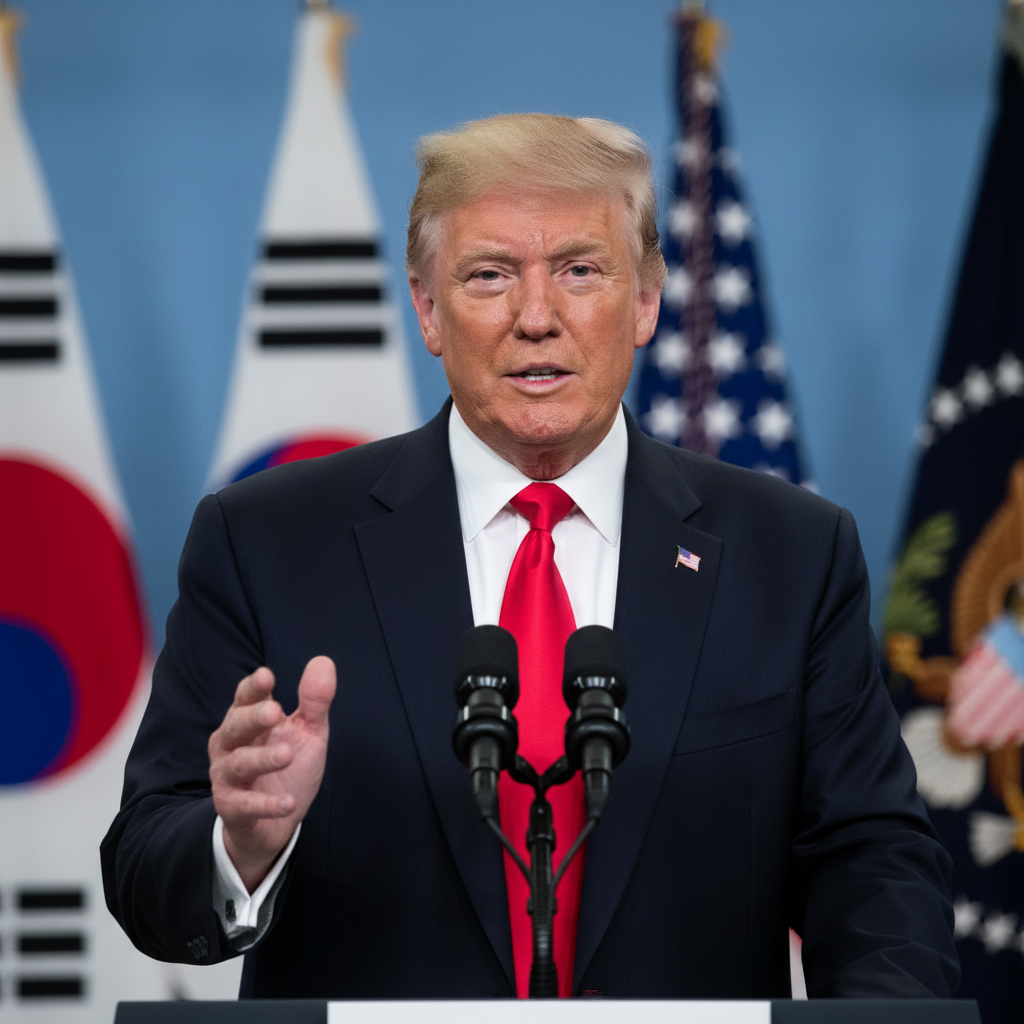Trump Predicts 'Things Will Get Better' With North Korea

Former U.S. President Donald Trump stated he believes the situation with North Korea will improve. This remark is noteworthy, coming as it does against the backdrop of heightened tensions on the Korean Peninsula due to recent missile launches and other military provocations from North Korea.
While Trump did not provide specific reasons for his optimism, it is interpreted as an expression of hope that dialogue and negotiation with North Korea can lead to positive change. However, some express concern that Trump's statement is based on an overly optimistic view of North Korea's commitment to denuclearization. North Korea has not abandoned its nuclear weapons program and is, in fact, continuing its efforts to advance its nuclear capabilities. Therefore, it is argued, Trump's comments could send the wrong signal to North Korea and negatively impact nuclear negotiations.
Trump's statement is also likely to influence the foreign policy of the current South Korean administration under President Lee Jae-myung. The Lee Jae-myung government has consistently maintained its commitment to building peace on the Korean Peninsula through dialogue and negotiation with North Korea. However, continued provocations from North Korea have made a resumption of dialogue difficult. In this context, Trump's remarks could provide the Lee Jae-myung government with an opportunity to explore the possibility of dialogue with North Korea. At the same time, it also raises the question of whether engaging in dialogue is appropriate given the uncertainty surrounding North Korea's commitment to denuclearization.
Ultimately, the Lee Jae-myung government will need to carefully consider Trump's comments, verify North Korea's sincerity, and determine the direction of its North Korea policy in cooperation with the United States.
Trump's positive outlook on improving the situation with North Korea has triggered a variety of reactions in the international community. Some experts analyze Trump's comments as a diplomatic gesture aimed at restarting dialogue with North Korea. In other words, it is seen as sending a positive message to bring North Korea to the negotiating table. Conversely, other experts criticize Trump for not properly recognizing the seriousness of North Korea's nuclear weapons program. They argue that premature optimism, while North Korea has not ceased its nuclear weapons development, could lead to a de facto recognition of North Korea's nuclear capabilities.
Furthermore, neighboring countries such as China, Japan, and Russia are closely monitoring Trump's remarks. In particular, China is seeking to strengthen its relationship with North Korea while keeping the U.S. influence on the Korean Peninsula in check. Japan is reinforcing its vigilance against North Korea's missile threats and reaffirming the U.S. commitment to extended deterrence. Russia is expanding its economic cooperation with North Korea and attempting to increase its influence on the Korean Peninsula issue. As such, Trump's remarks are intricately intertwined with the interests and strategic calculations of countries surrounding the Korean Peninsula, and are expected to have a significant impact on the future of Northeast Asian affairs.
Following Trump's remarks, various opinions have been expressed within South Korea. The ruling People Power Party, while welcoming Trump's comments, has also raised concerns about the need to verify North Korea's commitment to denuclearization. The People Power Party does not oppose dialogue with North Korea, but believes that the goal of dialogue must be clear denuclearization, and that sanctions should not be eased until North Korea demonstrates genuine measures. On the other hand, some civic groups argue that dialogue with North Korea should be actively pursued in light of Trump's comments. They emphasize that there is no other way to achieve peace on the Korean Peninsula than through dialogue, and that Trump's remarks could provide a good opportunity to restart dialogue.
Opinions are also divided among experts. Some experts believe that Trump's remarks could induce a change in North Korea's attitude, while others argue that dialogue is meaningless unless North Korea abandons its nuclear weapons program. As such, Trump's remarks have sparked a variety of opinions within South Korean society, further intensifying the debate over North Korea policy. In the future, the Lee Jae-myung government will need to gather these diverse opinions and pursue a North Korea policy that prioritizes South Korea's security and national interests.
In conclusion, Trump's statement that "things will get better" with North Korea is having a complex impact on the situation on the Korean Peninsula. His remarks open the door to the possibility of dialogue with North Korea while also raising questions about North Korea's commitment to denuclearization. The Lee Jae-myung government will need to carefully analyze Trump's comments, strengthen cooperation with the United States, and pursue a North Korea policy that protects South Korea's security and national interests. It will also need to verify North Korea's sincerity and lead North Korea down the path of denuclearization through a strategy that combines dialogue and pressure. Peace on the Korean Peninsula is essential for South Korea's survival and prosperity, and to achieve this, the government, political circles, and civil society must all work together with wisdom and strength.
